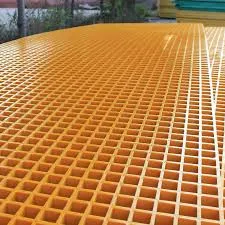
-
 Afrikaans
Afrikaans -
 Albanian
Albanian -
 Amharic
Amharic -
 Arabic
Arabic -
 Armenian
Armenian -
 Azerbaijani
Azerbaijani -
 Basque
Basque -
 Belarusian
Belarusian -
 Bengali
Bengali -
 Bosnian
Bosnian -
 Bulgarian
Bulgarian -
 Catalan
Catalan -
 Cebuano
Cebuano -
 China
China -
 China (Taiwan)
China (Taiwan) -
 Corsican
Corsican -
 Croatian
Croatian -
 Czech
Czech -
 Danish
Danish -
 Dutch
Dutch -
 English
English -
 Esperanto
Esperanto -
 Estonian
Estonian -
 Finnish
Finnish -
 French
French -
 Frisian
Frisian -
 Galician
Galician -
 Georgian
Georgian -
 German
German -
 Greek
Greek -
 Gujarati
Gujarati -
 Haitian Creole
Haitian Creole -
 hausa
hausa -
 hawaiian
hawaiian -
 Hebrew
Hebrew -
 Hindi
Hindi -
 Miao
Miao -
 Hungarian
Hungarian -
 Icelandic
Icelandic -
 igbo
igbo -
 Indonesian
Indonesian -
 irish
irish -
 Italian
Italian -
 Japanese
Japanese -
 Javanese
Javanese -
 Kannada
Kannada -
 kazakh
kazakh -
 Khmer
Khmer -
 Rwandese
Rwandese -
 Korean
Korean -
 Kurdish
Kurdish -
 Kyrgyz
Kyrgyz -
 Lao
Lao -
 Latin
Latin -
 Latvian
Latvian -
 Lithuanian
Lithuanian -
 Luxembourgish
Luxembourgish -
 Macedonian
Macedonian -
 Malgashi
Malgashi -
 Malay
Malay -
 Malayalam
Malayalam -
 Maltese
Maltese -
 Maori
Maori -
 Marathi
Marathi -
 Mongolian
Mongolian -
 Myanmar
Myanmar -
 Nepali
Nepali -
 Norwegian
Norwegian -
 Norwegian
Norwegian -
 Occitan
Occitan -
 Pashto
Pashto -
 Persian
Persian -
 Polish
Polish -
 Portuguese
Portuguese -
 Punjabi
Punjabi -
 Romanian
Romanian -
 Russian
Russian -
 Samoan
Samoan -
 Scottish Gaelic
Scottish Gaelic -
 Serbian
Serbian -
 Sesotho
Sesotho -
 Shona
Shona -
 Sindhi
Sindhi -
 Sinhala
Sinhala -
 Slovak
Slovak -
 Slovenian
Slovenian -
 Somali
Somali -
 Spanish
Spanish -
 Sundanese
Sundanese -
 Swahili
Swahili -
 Swedish
Swedish -
 Tagalog
Tagalog -
 Tajik
Tajik -
 Tamil
Tamil -
 Tatar
Tatar -
 Telugu
Telugu -
 Thai
Thai -
 Turkish
Turkish -
 Turkmen
Turkmen -
 Ukrainian
Ukrainian -
 Urdu
Urdu -
 Uighur
Uighur -
 Uzbek
Uzbek -
 Vietnamese
Vietnamese -
 Welsh
Welsh -
 Bantu
Bantu -
 Yiddish
Yiddish -
 Yoruba
Yoruba -
 Zulu
Zulu
rectangular tank made of fiberglass material
The Advantages of a Rectangular Tank Made of Fiberglass
Fiberglass has emerged as a popular material for the construction of various tanks, particularly rectangular tanks used in both industrial and residential applications
. These tanks are known for their durability, corrosion resistance, and ease of customization, making them a valuable choice for storing liquids in various settings.One of the primary advantages of fiberglass rectangular tanks is their exceptional resistance to corrosion. Unlike metal tanks that can rust or degrade when exposed to harsh chemicals or environmental conditions, fiberglass tanks can withstand a wide range of corrosive substances. This resilience is especially important in industries such as chemical manufacturing, wastewater treatment, and agriculture, where the stored liquids may contain aggressive agents. The longevity of fiberglass tanks thus reduces long-term maintenance costs and minimizes the risk of leaks that can lead to environmental contamination.
Moreover, fiberglass rectangular tanks are lightweight yet sturdy. This combination allows for easier transportation and installation compared to traditional concrete or steel tanks. The lightweight nature of fiberglass enables structures to support larger tanks without compromising stability, making it ideal for large-scale operations. Additionally, the smooth interior surfaces of fiberglass tanks reduce friction, thereby facilitating easier flow and reducing the likelihood of sediment build-up, which can degrade the quality of the stored liquid.
rectangular tank made of fiberglass material

Customization is another significant attribute of rectangular fiberglass tanks. Manufacturers can tailor the size, shape, and design of these tanks to fit specific requirements of the end user. This flexibility allows businesses and homeowners to optimize their storage space without sacrificing functionality. For instance, a rectangular tank can be designed to fit snugly into tight spaces or be configured to take advantage of vertical space, thereby maximizing storage capacity.
Furthermore, fiberglass tanks are designed with insulation properties that help in temperature regulation. This characteristic is particularly beneficial for the storage of temperature-sensitive materials. By maintaining a consistent temperature, fiberglass tanks can help to preserve the quality of the stored products, whether they are chemicals, water, or other liquids.
Another defining feature of fiberglass rectangular tanks is their low maintenance needs. The impermeable nature of fiberglass minimizes the potential for algae growth and biofilm accumulation, lessening the frequency of cleaning and maintenance. This property not only saves time and resources but also ensures that the stored liquids remain uncontaminated.
In conclusion, rectangular tanks made of fiberglass offer a myriad of advantages, making them an excellent choice for various applications. Their corrosion resistance, lightweight design, customization flexibility, insulation properties, and low maintenance requirements make them ideal for industries looking for reliable and efficient storage solutions. As industries continue to evolve and prioritize sustainability and efficiency, fiberglass tanks stand out as a durable and practical choice that meets the challenges of modern storage needs.
Latest news
-
Exploring the Benefits of Top Hammer Drifter Rods for Enhanced Drilling PerformanceNewsJun.10,2025
-
High-Precision Fiberglass Winding Machine for GRP/FRP Pipe Production – Reliable & Efficient SolutionsNewsJun.10,2025
-
FRP Pipes & Fittings for Shipbuilding - Corrosion-Resistant & LightweightNewsJun.09,2025
-
Premium FRP Flooring Solutions Durable & Slip-ResistantNewsJun.09,2025
-
Premium Fiberglass Rectangular Tanks Durable & Lightweight SolutionNewsJun.09,2025
-
Tapered Drill String Design Guide Durable Performance & UsesNewsJun.09,2025









